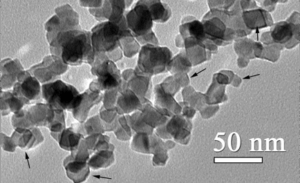 We are saddened when hearing about persons dying in floods, tornadoes, and other natural weather disasters. The numbers seem so high. But...it turns out the biggest killer each year is heat. Extreme heat kills more people most years than hurricanes, floods, and tornadoes combined.
We are saddened when hearing about persons dying in floods, tornadoes, and other natural weather disasters. The numbers seem so high. But...it turns out the biggest killer each year is heat. Extreme heat kills more people most years than hurricanes, floods, and tornadoes combined.
Extreme heat events are on the rise globally (yup, climate change) and so the number of people dying are increasing. For example, the recent heat wave across Europe, when temperatures surged higher than 100 degrees Fahrenheit, is thought to have killed thousands of people. Especially since in many of the areas hit by the extreme heat people don't have air conditioning in their homes.
A quick analysis of heat-related deaths by researchers at the Imperial College London found that human-induced climate change intensified the European heatwave between June 23 and July 2, 2025 and tripled the number of heat-related deaths. They found that about 2300 people may have died from the extreme heat over the 10 day period across the 12 European cities they looked at, but that over all Europe there could have been tens of thousands of deaths. People over 65 accounted for a majority (88%) of the deaths.
Each year in the US, heat kills more people than any other type of extreme weather.
The following article was written last year, but it still applies since each year is getting hotter. Note that 2024 was hotter than 2023, which was the final year of the heat-related death analysis. NY Times: Heat Deaths Have Doubled in the U.S. in Recent Decades, Study Finds
As dangerous heat bears down on the central and eastern United States this week, a new study shows heat-related deaths across the country are on the rise. ...continue reading "Heat Is A Bigger Killer Than Other Weather Disasters"

 Exercise helps fight cancer. Wow! What a headline. But is it true?
Exercise helps fight cancer. Wow! What a headline. But is it true?
 Once again, those wondering about the chemicals lurking inside us have bad news. In a long-running
Once again, those wondering about the chemicals lurking inside us have bad news. In a long-running  One trend the researchers found is that levels of 2,4-D (pesticide used as a herbicide or weed-killer) are trending upwards over time. This is because 2,4-D is commonly used as a weed-killer on lawns (including Feed and Weed) and elsewhere, but it is also used on genetically modified crops.
One trend the researchers found is that levels of 2,4-D (pesticide used as a herbicide or weed-killer) are trending upwards over time. This is because 2,4-D is commonly used as a weed-killer on lawns (including Feed and Weed) and elsewhere, but it is also used on genetically modified crops.
 For years I heard health care providers recommend to persons worried about or with type 2 diabetes to only consume water, unsweetened coffee or tea, or zero calorie artificially sweetened beverages, including soda. Well, it turns out that artificial sweeteners have all sorts of harmful health effects, with different sweeteners (e.g.,
For years I heard health care providers recommend to persons worried about or with type 2 diabetes to only consume water, unsweetened coffee or tea, or zero calorie artificially sweetened beverages, including soda. Well, it turns out that artificial sweeteners have all sorts of harmful health effects, with different sweeteners (e.g., 


 Many people think that living next to a golf course is wonderful, thinking that it's lots of open space. But... it also comes with exposure to all the pesticides used on golf course lawns (pesticides drift through the air to neighboring properties and also get into water). Unfortunately, pesticides can cause health harms, including Parkinson's disease.
Many people think that living next to a golf course is wonderful, thinking that it's lots of open space. But... it also comes with exposure to all the pesticides used on golf course lawns (pesticides drift through the air to neighboring properties and also get into water). Unfortunately, pesticides can cause health harms, including Parkinson's disease.